
The independent arthouse industry relies on its powerhouse PRs to propel films to the fore at the major international film festivals. They must cultivate productive relationships with journalists and film critics to steer buyers, programmers and ultimately audiences to their clients’ films.
These PRs are at the vanguard of the transformation of the independent film business. The job now starts long before the festival and extends far after closing night. Journalism and publishing changed over a decade ago as the move from print to digital helped to decimate arts coverage in national newspapers and the international consumer press, leaving editors able only to take reviews of the biggest films, interviews with the biggest stars. (As the industry’s leading international trade, Screen International endeavours to review as many of the films in official selection at the major festivals as possible — 107 films at Cannes 2022.)
The pandemic then altered the festivals themselves, perhaps indelibly. As lockdowns closed cinemas around the world, sales companies and distributors survived (mostly) by slashing spend and becoming painfully acquainted with Zoom. Many festivals were forced online and the world settled in to watch films on TV and laptops.
Now physical festivals are back, with bumper programmes studded with the films held back or delayed by those two closed-down years. But sales companies still watch costs like hawks, reviewers still want links, and actors and directors jet in for just a day before speeding back to the sets on which they work to meet the demand for content, content, content.
On the eve of Venice 2022, a festival jam-packed with glittering arthouse gems, Screen profiles the PRs who know best how to navigate the Lido, as well as Cannes and Berlin. These people are passionate about their films, unfailingly loyal to their clients and indefatigable in their efforts to elevate their titles beyond the festival bubble.
Louise Tutt, deputy editor
Florence Alexandre
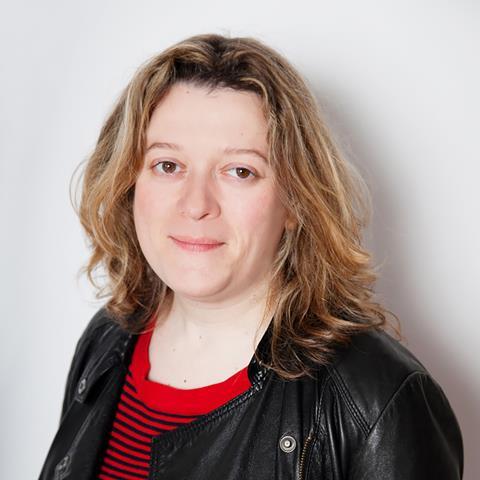
Alexandre is director of Paris-based PR company Anyways. She set up the firm in 2015, having previously run Les Piquantes for eight years. Separately, Alexandre also works as in-house PR for Unifrance.
Regular clients
A who’s who of French sales agents: Wild Bunch International, mk2 Films, Les Films du Losange, Le Pacte and Kinology, plus European counterparts Films Boutique, Best Friend Forever and Heretic.
How are you navigating the way festivals are changing?
The press has less space now. The commercial pressure is higher as the market is getting slower. Sales agents are asking themselves, “Is it worth hiring a PR?” I think it’s more and more worth it. If they don’t have us, the film won’t even have a tiny bit of visibility.
Who was your mentor?
I used to work in production. The directors I worked with taught me a lot. The people who influence me more are journalists.
Toughest part of the job?
People are only looking for something very original or different. Some film proposals don’t seem attractive as they’re “good” or “very good” — they’re not “excellent”. It is not enough to have a very good film that’s beautifully made.
Viviana Andriani
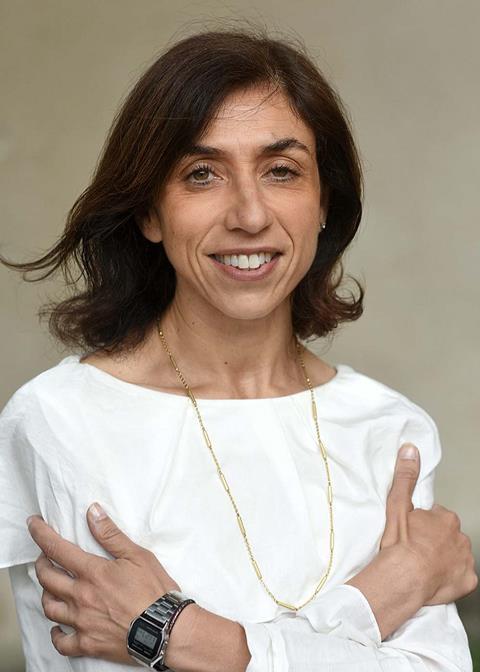
Paris-based Andriani founded RendezVous in 2009, joined by freelancer Aurélie Dard in 2012. Andriani also runs film social-media strategy content agency L’Avventura Studio with Gabriele de Bortoli.
Regular clients
Wild Bunch, mk2 Films, Memento, The Match Factory, Le Pacte, Films Boutique, Les Films du Losange, Playtime, Indie Sales, The Party Film Sales and Be For Films. Andriani’s six Venice 2022 titles include new films from Frederick Wiseman and Alice Diop.
How are you navigating the way festivals are changing?
Our clients must contain costs much more. We need to have more flexibility to handle films with smaller budgets. Films in festivals still need PR even if press attention and coverage of arthouse films is decreasing.
Who was your mentor?
My irreplaceable friend and colleague Richard Lormand. He was passionate, brilliant and the best for talking to filmmakers.
Toughest part of the job?
To help young talents emerge in parallel sections [of the festivals]. The media does not have the capacity — and curiosity for some — to cover them. It’s difficult to handle films and encourage new talents without strong press coverage, reviews and interviews.
Marijana Harder
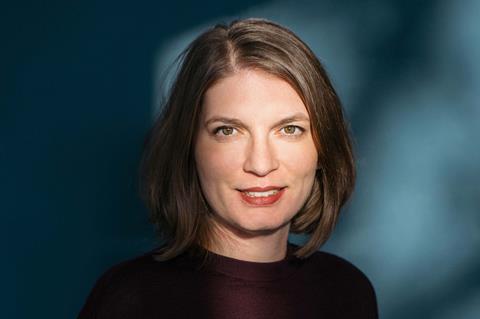
Berlin-based Harder spearheads campaigns for films selected by all the key festivals and works with distributors, sales companies, media institutions and filmmakers. Explaining her boutique approach to publicity, she ironically quotes the German term “chefarzt”, which literally means “chief doctor” and refers to people wanting to be seen by the boss: “If you hire me, you’ll work directly with me.”
Regular clients
Cercamon, Fortissimo Films, NFI, Picture Tree International, Soul Food Films, Film Center Serbia, Slovenian Film Centre.
How are you navigating the way festivals are changing?
Not as many journalists have been assigned to cover festivals since the pandemic, and the increasing number of films competing for visibility means that I reserve more time prior to festivals to secure quality coverage.
Any advice for press?
The key to an interview with talent is real interest and preparation.
Toughest part of the job?
The last Berlinale was challenging with the official selection squeezed into six days. Working during Covid-19 was full of different variables: will the festival be physical or online; schedules factoring in testing; and creating fallback scenarios in case talent tested positive.
Off the record…
“Collecting talent from yachts after they went missing, waking up talent who fell asleep on the beach and having to physically make sure two talents who weren’t fond of each other were not photographed together whatsoever — even when they were starring together in a film they also produced.” Anonymous
Lawrence Atkinson and Dana Archer
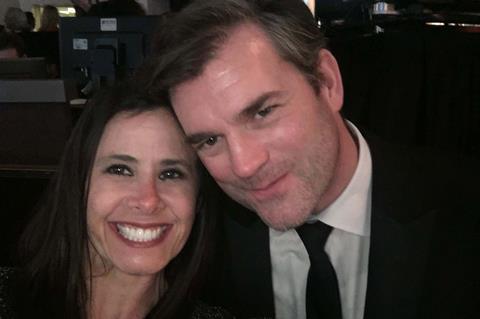
Atkinson, the London-based CEO of film PR giant DDA, and company partner Archer, who heads up the Los Angeles office, work alongside partners Neil Bhatt and John Stannard. They and the DDA team are regular faces at festivals and markets around the world, servicing studios, streamers, indies, government bodies, filmmakers and actors. Recent festival films include Cannes 2022 selections Final Cut and Mothering Sunday, and Venice 2022 selections Bardo, False Chronicle Of A Handful Of Truths, Blonde and White Noise, among others.
Regular clients
Atkinson and Archer particularly enjoy working with up-and-coming filmmakers and international films. Regular clients in this space include Alexander Rodnyansky’s AR Content, Neon, Wild Bunch International and the recently launched Black Bear International.
How are you navigating the way festivals are changing?
Archer: Costs have naturally gone up with the uptick in travel fares. We are more selective in terms of interviews given on the ground. If it’s a sales title, it needs to be fast-breaking and really move the needle. And it’s important to think downstream to the release.
Atkinson: [Festivals] are expensive. Having the minimum time on the ground with talent but creating maximum effect is key, as is understanding the needs and priorities of each film when it comes to strategising and scheduling interviews.
Any advice for press?
Atkinson: Accepting that press and PRs need each other. We’re two sides of the same coin.
Who were your mentors?
Atkinson: Dennis Davidson and Daniel Battsek. I joined Buena Vista International in 1996 where Daniel had been appointed MD. A great executive with great taste, a true grasp of the creative process, and a deep understanding of marketing and commerciality. I learned a lot.
Archer: Warren Cowan and Dennis Davidson taught me the ropes, indulged my passion for old Hollywood and taught me the importance of tradition while still championing progress.
Toughest part of the job?
Atkinson: Sharing the first set of reactions, and subsequently reviews, with a filmmaker when they are, shall we say, less than stellar. Especially when you’re at a festival. My toughest assignment was in Berlin, in charge of five private jets in a blizzard. The only one that didn’t take off was the one with the lead actor and her family. I had a blissful flight to Rome, completely unaware, until on landing my phone lit up like a Catherine wheel. It was a long night.
Maxine Leonard
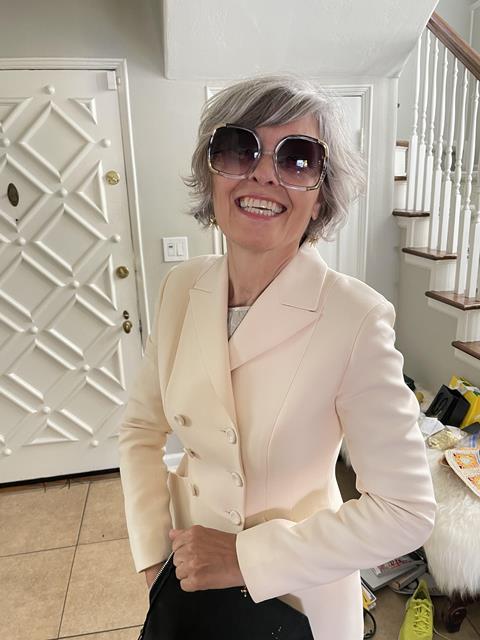
Los Angeles-based Leonard launched Maxine Leonard PR in 2011 after working for Nikki Parker at Denmead Marketing and leading publicity at GK Films. The UK maven’s team currently includes Shelly Josias and Charlotte Hallam alongside new publicists and veterans specialising in entertainment corporate PR and international release campaigns.
Regular clients
Protagonist Pictures, Highland Film Group, STX International, Upgrade Productions, White Horse Pictures, Voltage Pictures, Arclight Films, Vault AI, Concord Originals and Capstone Entertainment Group.
How are you navigating the way festivals are changing?
Trade lounges [for on-camera talent interviews] have become key, especially if you are launching for sales as they speak directly to the industry. All costs of travelling talent have gone up, and the producers and sales agents have to consider the cost. For a film without distribution in place, everyone has to work together to keep that budget in check.
Any advice for press?
Please reply to emails, even if it’s a “no”.
Who were your mentors?
David Kosse and Nikki Parker. Both showed me that where there is a will there is a way to achieve anything.
Toughest part of the job?
It’s all tough but oh so rewarding. Being consistently excellent, keeping all the plates spinning, juggling expectations, landing those hard pitches, dealing with impossible requests, managing a work/life balance and creating a happy, interesting work environment for my amazing team.
Kara MacLean
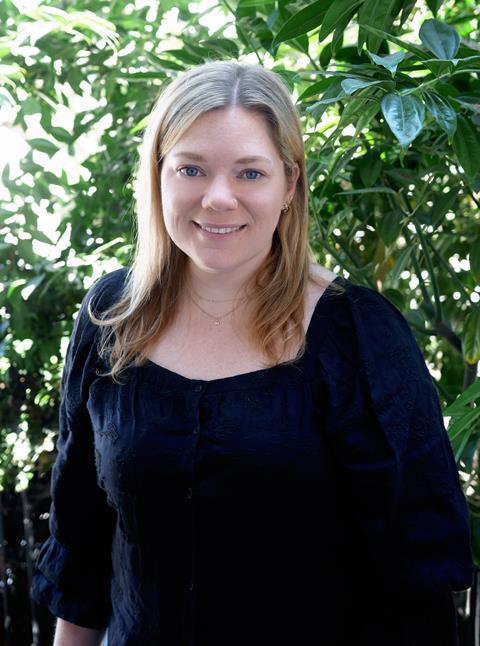
As senior director at Organic’s Los Angeles office, MacLean oversees a team of four from the agency’s 12-strong international team, most of which are based in London, and has worked with SVP Kirsty Langsdale over the past year to help build the US office. Recent festival titles include Moonage Daydream and The Silent Twins at Cannes and One Year, One Night and Robe Of Gems at Berlin, while upcoming is The Son at Venice.
Regular clients
Embankment Films, Sierra/Affinity, Lionsgate, Universal Pictures, Wild Bunch, Array, Studiocanal, Netflix, Magnolia Pictures; LGBTQ+ film festivals Inside Out, NewFest and Frameline.
How are you navigating the way festivals are changing?
The biggest change is less coverage of independent films, the result of an influx of films presented at festivals and the outlets’ need for strong viewership and articles that help sell ad space. I enjoyed the creativity that came with larger budgets at festivals, but everyone is still figuring out their next moves after being displaced for a few years.
Who were your mentors?
There have been many, particularly my friend and former business partner Kevin McLean, but most recently Organic’s Kirsty Langsdale.
Any advice for press?
Talk to publicists about what films you’re most interested in genre or subject-wise, and you’ll get more specific outreach.
Toughest part of the job?
You get a lot of personalities that can be challenging to navigate when you’re in charge of their baby [film]. Managing those expectations against reality can be tough.
Charles McDonald
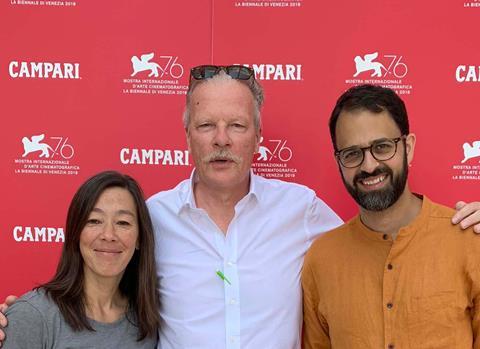
UK-based McDonald has a reputation as a generous and knowledgeable industry figure, and works with Matthew Sanders and Manlin Sterner in their company International Rescue. They bond over a shared sense of humour. “That’s essential,” says McDonald.
Regular clients
McDonald chooses producer and director-driven films, working regularly with filmmakers including Lynne Ramsay, Jim Jarmusch, Terence Davies, Darren Aronofsky, and for the first time at Cannes 2022, Ruben Östlund. “It’s important there is a proper exchange of ideas and a mutual respect,” he says.
How are you navigating the way festivals are changing?
As it’s mostly done before the festival in terms of pitching and scheduling, I miss that opportunity at the beginning of a festival to sit down with each of the key journalists and talk through the films we’ve got. It’s much, much more difficult to get momentum behind a film that doesn’t have a known director or a known cast or an obvious angle. A lot of the press are interested in those kind of films and want to take the leap but their editors are just not interested. Everybody wants the next Angelina Jolie interview, quite frankly. The relative paucity of trade reviews these days is a real issue, too.
Another issue is that with Zoom interviews, talent are giving less and less time to support films. There is a real tendency to start initiating even 10-minute group interviews with 12 people and that is anathema to us personally. It’s disrespectful to everybody concerned. It’s all a lot less personal.
Any advice for press?
Don’t ask me about parties, particularly if I don’t know you.
What should clients know about how you work?
It does not get passed down the line to a junior. It’s me or Matthew or Manlin. It is a bespoke job, in that regard. And yes, it’s a lot more work now but the interesting part of the work is preparing a film, choosing images, working out a strategy and moving forward towards the festival. It’s a long gestation and the fees don’t reflect that but it’s the interesting part of it.
What we love is the ongoing relationships with directors. That makes what’s a slightly strange job, very rewarding. You feel an emotional link with the director. Festivals are tough for directors. However macho or confident they may seem on the outside, it’s a hell of a thing now to come to a festival with this idea you’ve nurtured for two years, spent five years getting it made and there it is, you proffer it to the awaiting media and film industry. And it is judged instantaneously. Part of my job is to ease them through that with good humour and, I hope, good judgment.
Who was your mentor?
Theo Cowan, the first guy I worked for, and nothing to do with Rogers & Cowan. He represented people like Peter Sellers, Rod Steiger and Deborah Kerr. He didn’t take himself too seriously and had a ridiculous sense of humour.
Toughest part of the job?
When you’re faced with a negative reaction to a film and then guiding the director through that process, particularly if you like the director and respect the film. That is extremely hard and it can be upsetting. But there are certain things you can do to rally them. With a provocative film, that can be a mitigating factor. The director hasn’t necessarily made it for a broad audience. Or you can say to them, “This is but one film in your canon and you have a huge amount of supporters out there.”
Off the record…
“I had a director who was an alcoholic and asking for a drink all the time. I would pour non-alcoholic beer into a glass and bring it to them — and it worked. Sometimes you put just a little bit of alcohol in one — I know when they need it, to get to the end of the day.” Anonymous
Kathleen McInnis
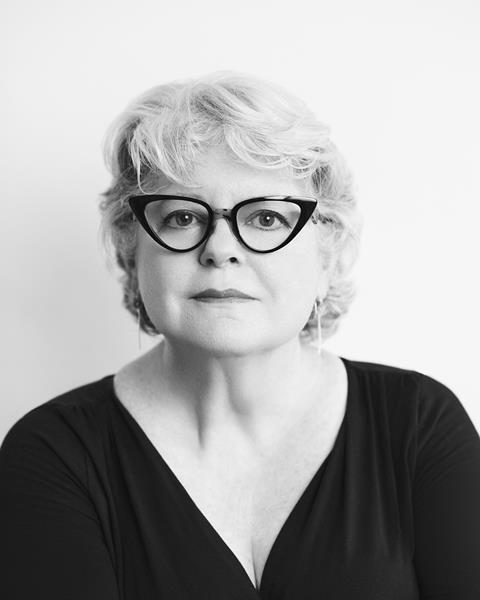
Based out of Seattle, Los Angeles and Berlin, McInnis’s See-Through Films consults for global filmmakers and deploys a rotating team of international publicists to work at international festivals. Festival titles handled in recent years include How To Save A Dead Friend in this year’s Cannes Acid sidebar, Brutalia, Days Of Labour in Cannes 2021 Critics’ Week and Venice 2021 selection Vera Dreams Of The Sea.
Regular clients
Heretic Films, Sisyfos Film, TrustNordisk, Psyop, Radiator IP Sales and SND Films.
How are you navigating the way festivals are changing?
Sundance 2022 was a watershed moment that shifted our workflow dramatically. We always ask, “Where and how are we most useful to our filmmakers?” and the answer now isn’t always going to be, “On the ground with them at the festival.” Festival hospitality has been limited by increased travel costs; outlets are limiting their presence on the ground either by having fewer writers or reducing available time at their pop-ups/studios; and the cost of doing business continues to rise.
Who was your mentor?
My first and most instrumental mentor was unit publicist/publicity consultant Rob Harris. He brought me onto my first film set, decoded the industry’s language for me and grounded my understanding of professional behaviour.
Susan Norget
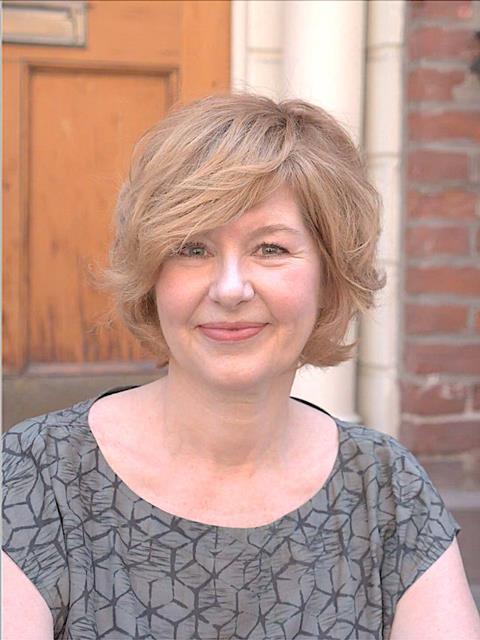
New York-based Norget launched her boutique operation in 1999 after working at Toronto International Film Festival and presides over a small team with no plans to expand. “I love having a direct relationship with all my clients and films,” she says.
Regular clients
Magnolia Pictures, IFC Films, HBO Docs, Netflix, Hulu, Showtime, Kino Lorber, Cinetic, The Match Factory, mk2 Films, Dogwoof, Submarine Entertainment and Autlook Filmsales.
How are you navigating the way festivals are changing?
Almost all but the newer filmmakers are spending less time at festivals. On-camera interviews with the key trades have perhaps become a bigger priority, especially for sales titles, as well as prominent or “tastemaker” press that breaks on the ground and can help elevate profile.
Any advice for press?
The more you can tell me in one email, the better.
Toughest assignment so far?
There was a stunning film by a certain Danish auteur at a famous French festival… and some talk of Nazis during the press conference. The press day cancelled, my assistant’s Jewish parents telling her within a nanosecond that the Anti-Defamation League had put out a statement, a festival ban…
Brigitta Portier
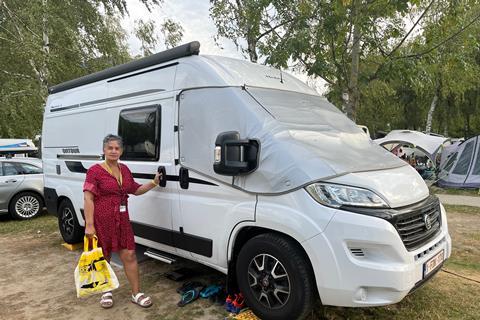
Portier runs Alibi Communications from her home in Leuven, outside Brussels, with her husband Gary. He handles the admin and drives the camper van in which they zigzag through Europe during the summer season, winding down from one festival and prepping for the next.
Regular clients
Be For Films, The Match Factory, MPM Premium, Luxbox Films, New Europe Film Sales, Le Pacte, and her longest-running client Pyramide International, with which Portier has been working for 22 years.
How are you navigating the way festivals are changing?
We earn so much less now but we’re doing much more. We have to work much more in advance. Before we used to do one-and-a-half, two days of interviews with talent at festivals. Not only with the director but with the cast. That’s totally changed. You can be happy if you have three hours of interviews.
Who was your mentor?
Richard Lormand. He taught me everything.
Toughest part of the job?
Clients have become more demanding [since] Covid. For them, the most important thing is reviews in the trades. If the [trades] say no, I never insist because films and clients will come and go but I work with the press 10 times a year and I need to keep a good relationship with them.
Christelle Randall
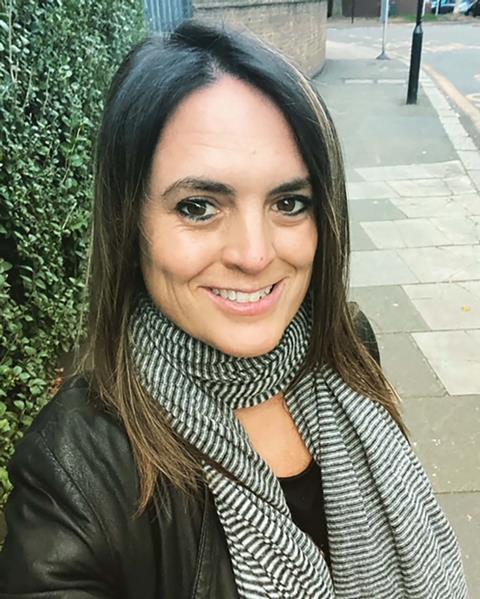
The UK’s Randall learnt her craft at Premier and Way To Blue before setting up on her own in 2020. She upscales for the big festivals, drawing on a supportive group of freelancers including Nicole Warren and working regularly to support Claudia Tomassini.
Regular clients
Film Constellation, mk2 Films, The Match Factory, Altitude Film Sales, HanWay Films.
How are you navigating the way festivals are changing?
It’s harder to get films reviewed in Venice than in Cannes, where there are more critics on the ground. Trailer placements are important. Outlets focus on the competition strands and the higher-profile sections but those kind of placements make the difference with the smaller films. It’s important to not lose those avenues for those films.
Any advice for press?
It is always tricky when journalists don’t understand I’m not the gatekeeper and there can be a strategy behind doing certain things. All the trades battle each other for exclusivity. That generally works out but it can be tricky. Honesty is key here.
Who were your mentors?
Jonathan Rutter and Liz Miller at Premier. I’ve also learned a lot from Kate Lee from Freuds and Claudia Tomassini.
Steven Raphael
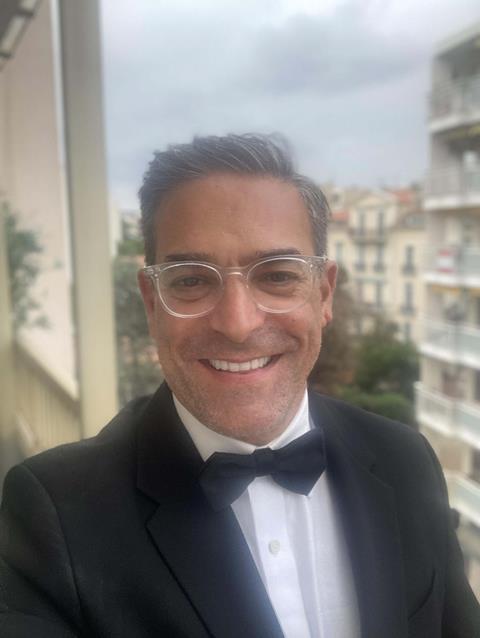
Raphael founded required viewing in 2004 where he works with Denise Sinelov. They maintain a regular bicoastal presence in New York and Los Angeles, serving clients around the world. Says Raphael, “My favourite film to work on in the past few years is The Worst Person In The World. I’m just totally in love with every element of that film.”
Regular clients
Neon and The Match Factory.
How are you navigating the way festivals are changing?
The smaller films are having a tougher time to get noticed. There is so much content available that it can be difficult to break through.
Any advice for the press?
We must all have mutual respect. Our goals are more similar than they are different.
Who were your mentors?
I have had some very inspiring bosses when I worked on the studio side including Harry Clein, Russell Schwartz and producer Donna Gigliotti.
Toughest part of the job?
When a wonderful film is not recognised. And when I used to work for USA Films and Focus Features, I had to fly from New York to Australia, then back to New York and then to Tokyo — all in the same week.
Jon Rushton
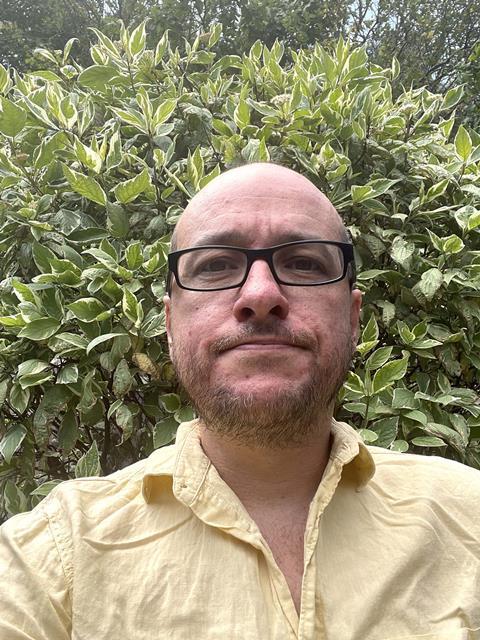
Yorkshire-based Rushton is a former Curzon Artificial Eye staffer who now freelances for UK and Irish distributors, such as Picturehouse Distribution and Wildcard Distribution, and moved into international film publicity at festivals during the pandemic. “Lockdown meant anyone could be an international publicist,” he says.
Regular clients
He is in Venice with films for mk2 Films and Alpha Violet, including Autobiography by Indonesia’s Makbul Mubarak (Horizons).
How are you navigating the way festivals are changing?
For Venice and Cannes, you have to be there on the ground. But for a certain size of festival, you can now do it remotely.
Who was your mentor?
Everyone who has been doing this has found themselves picking up the phone to Charles McDonald for his sage advice.
Toughest part of the job?
Budgets are becoming smaller. If you’re on a more director-led film, there are less costs. If you’re on a film when everyone is flying transatlantic and there are expectations over where they stay and who does hair and make-up, that can push up costs. But the challenges are still more about time than money, although I’m quite good at finding spaces to do interviews.
Off the record…
“The actor who missed his film’s premiere because the drug-sniffing beagle found weed in his pants pocket. The actor who kept wandering away from my team so I finally said, ‘Follow him into the loo if you have to, but don’t lose him again!’ The nervous director who got lost in the catacombs of the cinema trying to find his way to the stage for the Q&A. They make up a normal day for us.” Anonymous
Jonathan Rutter
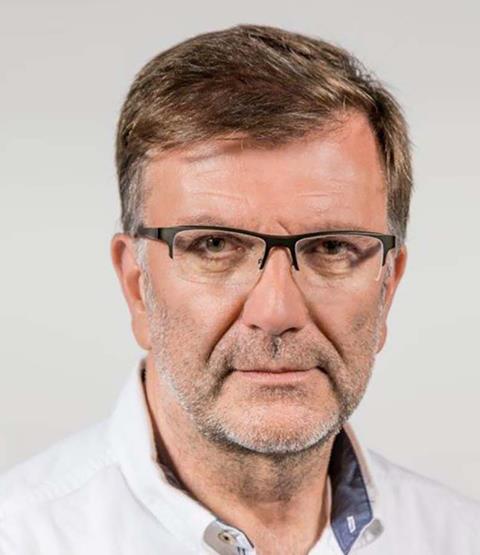
Rutter is executive director of the filmed entertainment division at London-based Premier, working closely with a core international festival squad that includes Eugene O’Connor, Emma Eliades, Simone Devlin, Matty O’Riordan and Fabrice Ouakinine.
Regular clients
Longtime partners include Searchlight Pictures, A24 and UK sales companies HanWay Films and Rocket Science.
How are you navigating the way festivals are changing?
It about creating a buzz for a film. The big films, you get reviewed and you just hope they are great. With the smaller films, you have to put the work into getting them reviewed. You use your own enthusiasm and relationship with a journalist to get them to go and see it and you do everything you can to make it easier for them, including putting on screenings before the festival and sending a link.
Any advice for press?
What bugs me enormously is people emailing me in July to ask what we are handling in Venice. There’s still a lot of missing info. Wait for the press release. And I do wish more journalists would be open to looking at some of the smaller films. If I’m in a position when I can do somebody a favour [on a bigger film], I’ll do it [if they look at a smaller film].
Who was your mentor?
I owe a lot to Dennis Davidson. He gave me my first job in the film industry in late 1985. I wrote to him as I knew I could write and I had a proven knowledge of cinema as I had been a semi-finalist in a BBC film quiz show called Film Buff in the early 1980s.
Toughest part of the job?
We’ve worked on some films that were not good. Sometimes a film goes to the wrong competition at the wrong festival, putting itself up with the world’s major auteurs. I will say to clients to not take that slot but often when we’ve come on board, they have taken the slot. We work mostly with companies that appreciate that honesty. It’s about getting as much out as possible before the reviews drop.
Claudia Tomassini
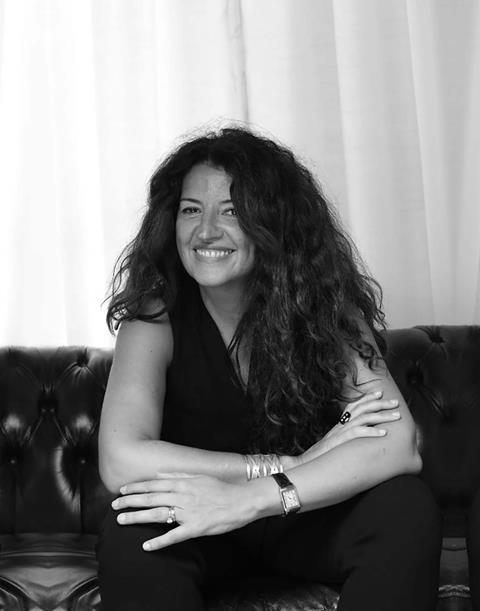
The Italian native is based in Berlin, working with a team of six at international festivals on arthouse films. Tomassini regularly partners with Los Angeles-based Cinetic Media, handling international press while Cinetic is on the US, and with UK-based Christelle Randall.
Regular clients
Participant Media, for which she is handling All The Beauty And The Bloodshed and A Compassionate Spy at Venice, and European companies on the Lido including The Match Factory (The March On Rome, In Viaggio and Lord Of The Ants), mk2 Films (Love Life) and Charades (The Origin Of Evil).
How are you navigating the way festivals are changing?
Festivals are becoming more crowded. There are a lot of films in a very tight period of time, and costs are very high, so many journalists will attend only part of the festival. You have to optimise coverage. It’s more difficult than before to get films reviewed, to get the right people for the right film. I try to pre-screen a lot to facilitate the press in watching the film in advance. Many outlets have less people on the ground and talent stays for a shorter period of time. Everyone is working a lot, with many [shoots] overlapping.
Any advice for the press?
Trust the press material and take the opportunity to watch the film in advance.
And for clients?
To develop useful and thoughtful press material — and images! Find a beautiful, powerful photo for your film. This is key.
Who were your mentors?
I learned a lot from [Participant’s] Diane Weyermann. She was an incredible person who knew how to choose relevant topics and turn them into great, relevant films. Richard Lormand had incredible style and grace, and Charles McDonald of course. And I learned the ropes from Daniela Staffa, an Italian publicist I worked with when I was starting out.
Toughest part of the job?
To get attention for films not in the main competition at film festivals.
Off the record…
“At Toronto one year, we had to hire special security to get an actor over the Canadian border because he lost his passport. I began to understand that we hired security not to protect talent from raging fans but to protect them from themselves.” Anonymous
Jessica Uzzan
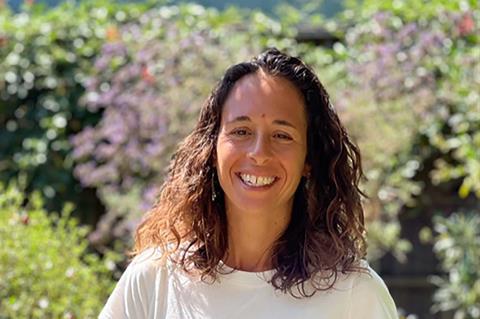
Uzzan co-founded Hook Publicity in 2010 and works with veteran freelancers as and when needed. In Cannes she collaborates with international publicists Alexis Delage-Toriel and her team at Le Public Systeme, and Charles McDonald, Matthew Sanders and Manlin Sterner at International Rescue. Uzzan specialises in North American press at Cannes and national US release publicity out of New York along with international and US press at North American festivals. Recent titles include Lee Jung-jae’s Hunt and Hirokazu Kore-eda’s Broker at Cannes this year.
Regular clients
Sony Pictures Classics, Roadside Attractions, Amazon, Magnolia Pictures, Cohen Media Group, LevelK, Altitude Films, Film Factory Entertainment, Luxbox Films, The Yellow Affair, El Deseo and K&S Films.
How are you navigating the way festivals are changing?
Years ago we scheduled almost everything on the ground. Now everything needs to be scheduled and approved days and weeks in advance and most press are sifting through a virtual pile of screener links before festivals. This makes it harder for films without known directors or stars to get discovered.
Any advice for press?
Please don’t tell me you don’t give reactions to a film you’ve seen and then tweet your reaction 10 seconds later.
Who were your mentors?
I learned a lot from Reid Rosefelt (publicity writing) and Hiromi Kawanishi (film publicity 101) at Magic Lantern PR; Jeff Hill at International House of Publicity (the importance of press relations and the lay of the land in Cannes); and MaryAnn Hult Vanco, who was once a client and later started Hook Publicity with me (publicity strategy).
Barbara Van Lombeek
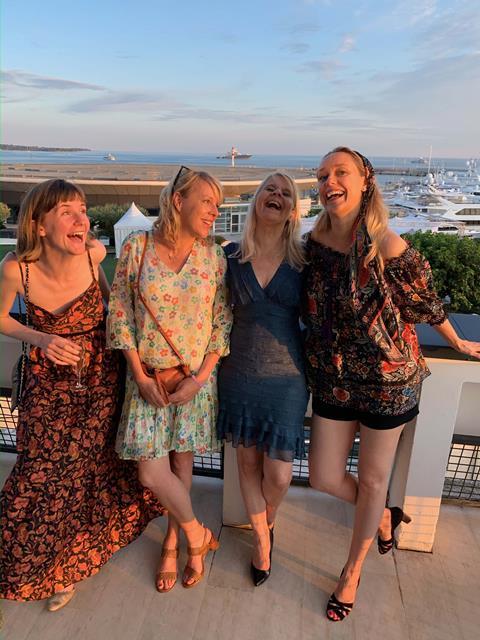
After starting her career at 20th Century Fox in Brussels, Van Lombeek founded Belgium-based The PR Factory in 2009 with Marie-France Dupagne, Gudrun Burie and Julie Vanderhaeghen. Van Lombeek is proud of their database of 25,000 international journalists.
Regular clients
Wild Bunch, Pathé, Pyramide International, Indie Sales, Luxbox and New Europe Film Sales. The company also works a lot with Afghan and now Ukrainian filmmakers. “We know how to handle sensitive materials and what kind of journalists we need to contact for that,” she says.
How are you navigating the way festivals are changing?
What has changed a lot is you guys, the trade papers. You used to have a lot more budget to cover all films, in all sections, at festivals. Now we have to resort to other outlets to maximise the coverage. For a sales company to sell a film, time is of the essence and they need to have feedback asap. We have a network of journalists all over the world, many who aren’t at the festival as they can’t afford it, who give us feedback on what they think. Everything helps with the more fragile films.
Any advice for press?
It’s helpful if the journalists express in advance what kind of content they are looking for and the deadlines they are working to. We have a good relationship with some US journalists who say, “We have room for this kind of content.”
What about the clients?
They trust us a lot. We’re straight talkers, we’re Belgians — we say things as they are. Over a longer period, you’ll get results. When I started working, it was all about the festival itself. Now it’s much more spread out. We start working three months before the festival and keep working for six months after.
Who were your mentors?
When I went to Cannes for the first time in 2001 with 20th Century Fox for Moulin Rouge!, Hilary Clark was in charge of international publicity. The framework of how the majors organise things is still very important for me. I have checklists from that time that still come to me. And when we started The PR Factory, we looked up to Charles McDonald. We ask, “What would Charles do?” He’s very well organised; he’s very respectful in how he deals with journalists. We do that too — it’s a two-way relationship.
Toughest part of the job?
It’s stressful — we’re squeezed between the talent, the press and the clients. Everything has to be perfect. We also organise all of the logistics. If a car doesn’t arrive or the hotel doesn’t accept early check-ins, it’s a big deal. You always have to work with the unexpected.
Off the record…
“We were looking after a film in Cannes. On press day, the lead actress was nowhere to be found. When we showed up at the second lead actress’s door, who had demanded her own grooming team, she ruffled her hair and put on some lip gloss — the quickest $3,000 ever spent. But at least she showed up.” Anonymous
Mirjam Wiekenkamp
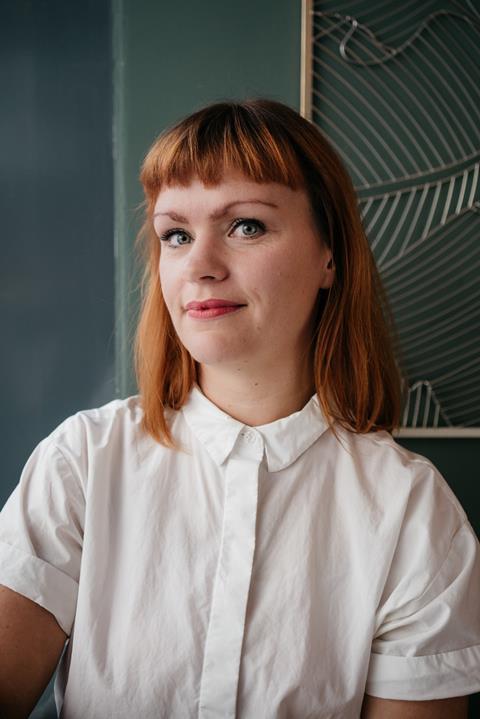
Wiekenkamp returned home to the Netherlands this summer, having spent eight years in Berlin establishing Noise PR as the international arm of Dutch PR firm Herrie Film & TV.
Regular clients
Square Eyes, The Playmaker and filmmakers including Nikolaus Geyrhalter, Ruth Beckermann and Georgian newcomer Ioseb ‘Soso’ Bliadze.
How are you navigating the way festivals are changing?
I like that it has become more accessible for those working with screeners. During the pandemic it became an office job instead of an on-the-ground job. I’m hoping that festivals will find a way in between, maybe by cutting down on the number of films. A lot of people realised in the last two years that they’re quite overwhelmed.
Any advice for press?
I value open communication on a very human level. I like to talk to press about what kind of story they’re looking for. Even if I sometimes have a story and it’s not something anybody will take, just saying no is absolutely fine. There’s a classic concept that PRs have to be super-sharky — that’s an old-fashioned model now. Life’s too short to work with unfriendly people; if you can’t be kind, it’s probably the last time we’ll work together.
Who was your mentor?
Herrie founder Noortje van de Sande. I started as her first intern. She taught me not only how to navigate the work and how you deal with clients, but also how the film industry works, which can be very overwhelming because you have so many different roles.
Toughest part of the job?
Sometimes stories or interviews are cut for external reasons. Having to bring that news to filmmakers still sometimes breaks my heart.
Wolf
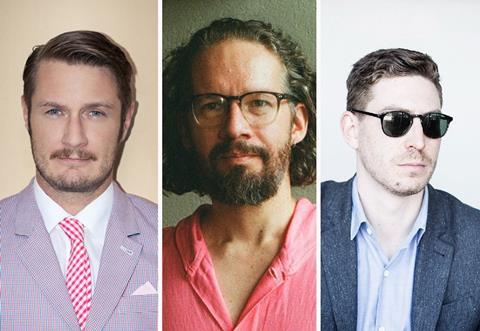
Gordon Spragg, Laurin Dietrich and Michael Arnon are partners in Berlin-based Wolf, taking on about five films per festival.
Regular clients
The Match Factory, New Europe Film Sales, and filmmakers including Noah Baumbach, Radu Jude, Kelly Reichardt and Haifaa al-Mansour. They are keen to discover new directors such as Chaitanya Tamhane, whose The Disciple they represented at Venice in 2020.
How are you navigating the way festivals are changing?
Arnon: We do everything a week or two in advance. The idea of coming to an office during the festival with a notebook has changed. Our entire planning is done by email before the festival starts.
Dietrich: Reaching out to people who might be interested in a project has become disconnected from the local event of the festival. It’s important to let go of this idea that every journalist needs to see the film in a cinema in the festival. If it works for the film, be open to sending out digital screeners, or organise screenings beforehand if it’s really a film that needs to be seen in a cinema environment.
Any advice for press?
Spragg: Be organised and be early. Everything at festivals happens at the last minute, but if you get in early, you will get what you’re looking for.
Dietrich: This is for filmmakers [too] — there’s a tendency to wait with post-production until the very last moment. But then you’re not going to have time to do this type of preparatory work of a junket two weeks before your festival screenings.
What is the toughest part of the job?
Dietrich: When a film doesn’t go well, or when it gets no reviews and flies under the radar. In that situation, to be with the people who made the film — how to handle that disappointment — is the most challenging aspect of what we do.
Arnon: When a festival announces a last-minute masterclass by a massive Hollywood star at the same time as your press screening for a first feature!
Gloria Zerbinati
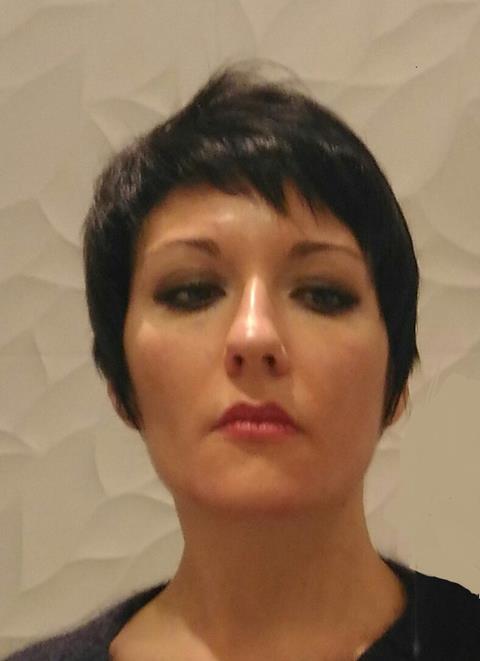
Italy-born, France-raised Zerbinati represents smaller festivals as well as arthouse films at the bigger festivals. At those festivals she brings on French PR Ursula Pfander to work alongside her. The two met at Visions du Réel.
Regular clients
The Match Factory, Totem Films, True Colours and Wild Bunch as well as directors she loves. “I’m lucky as I say yes or no to the directors I want to. There can be reasons — some cinephile, some political — to turn down a film,” she says.
How are you navigating the way festivals are changing?
Practically, more and more people ask me for screeners. I’m not happy at all with this. The common experience of cinema in your house, in front of your computer, is totally lost. If people, film critics, buyers, distributors, have a different experience of the film, we need an exchange with others. Sometimes maybe we like it too much or dislike a film and don’t understand something; talking with other people, perhaps you can have a different point of view. But critics think, “Why do I have to stand for an hour in a line to watch a film I can watch on my computer?” The people I work with are very careful about the screeners we send out. I respect this vision.
Who were your mentors?
Paolo Lughi, who was the head of press at La Biennale di Venezia where I worked for 12 years. And Richard Lormand, who pushed me to work independently as a freelancer.
Spotlight: View from the US
Alongside the more internationally focused publicists on Screen’s list, there are a multitude of crucial North America-based operators whose focus stays closer to home
There is a plethora of world-class US publicists and publicity firms who work the major international festivals or stay closer to home and focus on the North American circuit of Toronto, Telluride, Sundance, New York Film Festival and SXSW.
Ryan Werner’s team at New York-based PR and advisory firm Cinetic Marketing handles prestige international and US films and documentaries and regularly attends Cannes, Berlin and Venice, as well as the North American events led by Sundance, Toronto, Telluride, Hot Docs and New York Film Festival.
RJ Millard of Obscured Pictures is a regular face at festivals who will work on prestige films mostly in North America and is familiar with the international circuit. The larger agencies such as Sunshine Sachs Morgan & Lylis, whose film team is led by Brooke Blumberg, and Rogers & Cowan, where Dennis Dembia leads the entertainment and business strategy team, frequently work across the North American festivals and will contribute to campaigns and represent producers, corporate clients and individuals with new work in Cannes, Berlin and Venice.
Alyson Dewar of PR Works services films in North America and handles clients on the international circuit, as does Josh Haroutunian at Divergent PR, Laurent Boye of Jazo PR who also looks after luxury brands, and Paul Pflug and his team at Principal Communications Group. Erik Bright, Jason Kasperski and the Prodigy PR team shepherd films at Toronto, Sundance and attend international festivals in support of corporate clients.
The film and festival team under Chris Ginsberg and Chris Libby at Ginsberg Libby are active in North America, as are Melody Korenbrot and Ziggy Kozlowski of Block-Korenbrot PR. Renowned North American festival and film publicity shops include New York-based Falco Ink, Slate PR, Emma Griffiths PR, head of festivals Scott Feinstein at 42West, MPRM’s film and festival team under Mark Pogachefsky and Sylvia Desrochers, David Magdael at David Magdael & Associates, Jeff Hill at House Of Publicity, and Hilda Somarriba’s Prism Media (Somarriba has since joined 42West.)
Important too are Sara Serlen and Harlan Gulko’s film team at ID-PR, Emily Lu Aldrich and her team at Accolade, Platform Media Group MD Henry Eshelman, Deborah Kolar and Jan Kean of Kean & Kolar Communications, newly launched bicoastal Luminary Communications, and Sicily Publicity.
Canadian publicity mavens who play a key role promoting established and emerging talent at TIFF and other Canadian festivals and markets include GAT PR owner Ingrid Hamilton, Andréa Grau at Touchwood PR and Robyn Mogil at Taro PR.
Jeremy Kay




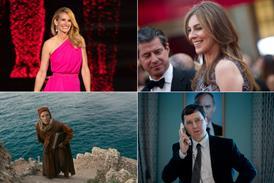
![Benjamin Kramer Headshot Photo Credit_CAA[40][40]](https://d1nslcd7m2225b.cloudfront.net/Pictures/274x183/6/6/4/1455664_benjaminkramerheadshotphotocredit_caa4040_107707.jpeg)
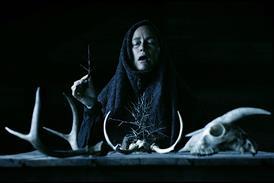
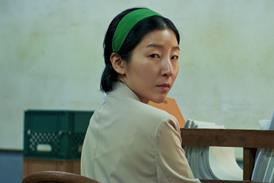






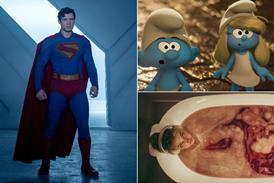
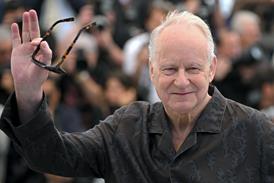









2 Readers' comments